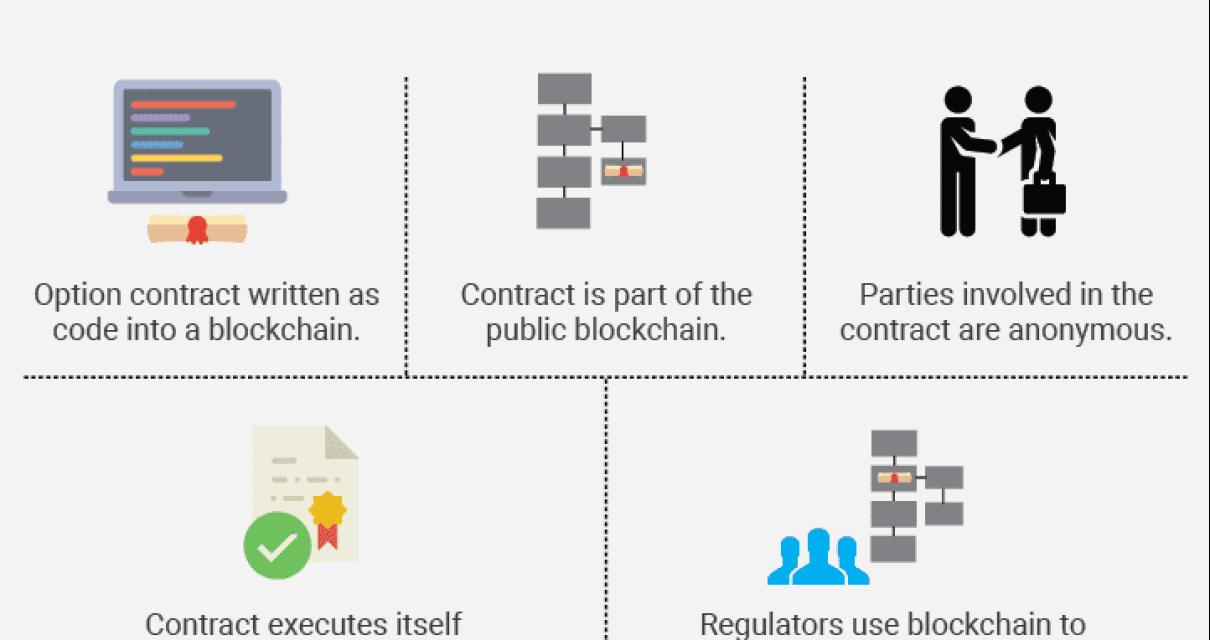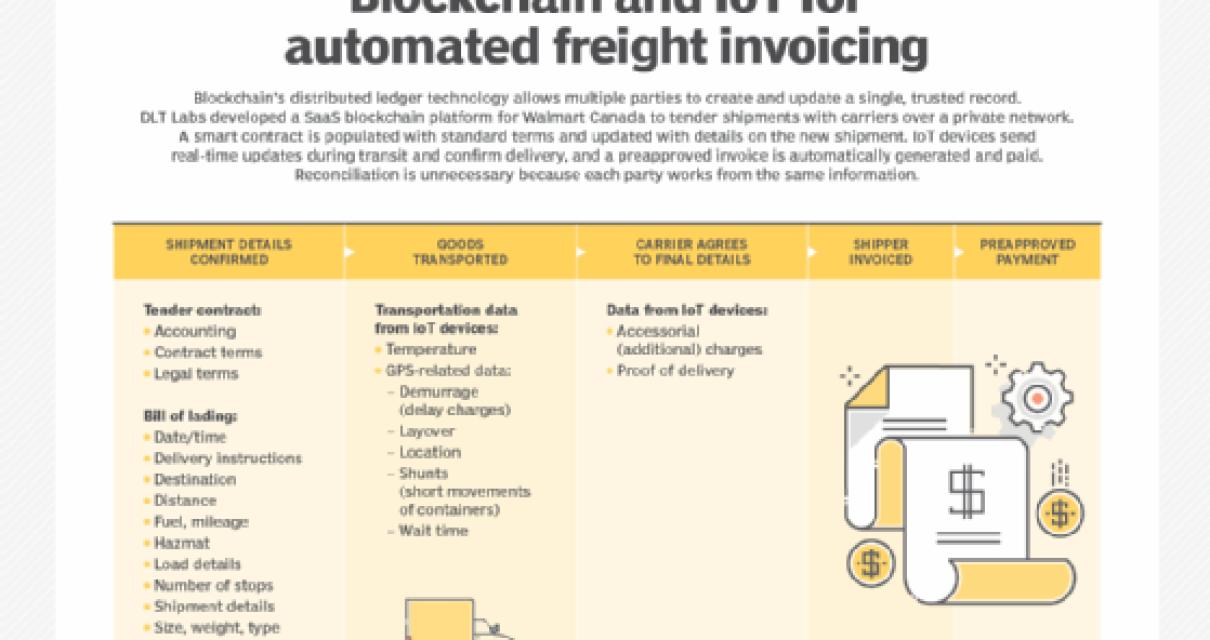What is a smart contract in blockchain?
A smart contract is a computer protocol that facilitates, verifies, and executes the terms of a contract. It operates on a distributed ledger such as the Bitcoin or Ethereum blockchains.
How do smart contracts work in blockchain?
A smart contract is a set of instructions that are stored in a blockchain and executed when a specific condition is met. For example, a smart contract could be used to automatically transfer money when a certain event occurs (like when a shipment arrives at a warehouse).
The Benefits of Using Smart Contracts in Blockchain
There are a number of benefits to using smart contracts in blockchain. Some of these benefits include:
1. Transparency and Accountability: Smart contracts allow for greater transparency and accountability than traditional contracts. This is because all transactions and conditions of the contract are transparently recorded on the blockchain. This enhances trust between parties and eliminates the need for third-party verification or arbitration.
2. Security: Smart contracts are secure because they are cryptographically signed and validated. This means that the contract cannot be altered without first being validated and then cryptographically signed again. This increases the security of the contract and prevents fraud and unauthorized transactions.
3. Cost Savings: Smart contracts can reduce the cost of contracting by eliminating the need for third-party intermediaries. This reduces the time and cost required to complete a contract.
4. Speed and Efficiency: Smart contracts can be processed quickly and easily due to their blockchain technology. This speedier process reduces the time and costs associated with contracting, making it more efficient for businesses.
5. Regulatory Compliance: Smart contracts can be used to comply with regulatory requirements, such as those related to the Safe Harbor program for international data transfers. This allows businesses to avoid costly delays and headaches associated with regulatory compliance.
How Smart Contracts Can Disrupt Traditional Business Models
Smart contracts can disrupt traditional business models by automating the negotiation and execution of agreements. For example, a company could use a smart contract to automatically pay suppliers on time, without the need for human interaction. This would save the company time and money, and improve efficiency.
Smart contracts can also automate the process of trust and reputation management. For example, a company could use a smart contract to automatically vet potential employees, and pay them based on their performance. This would reduce the need for human interaction, and ensure that the company is getting quality employees.
Smart contracts can also automate the process of dispute resolution. For example, a company could use a smart contract to automatically pay a disputed bill, or transfer ownership of an asset. This would reduce the need for human interaction, and ensure that disputes are resolved quickly and efficiently.
Smart contracts can have a wide range of other benefits, such as reducing costs, speeding up processes, and improving efficiency. As smart contracts become more widely used, they may significantly disrupt traditional business models.

What are the Use Cases for Smart Contracts in Blockchain?
In general, there are three primary use cases for smart contracts in blockchain:
1. Contract automation: Using smart contracts to automate the execution of agreements between two or more parties is a common use case. For example, a company might use a smart contract to automatically pay its suppliers every month.
2. Asset registry: Using a smart contract to register and track the ownership of assets is another common use case. For example, a company might use a smart contract to register the ownership of a new patent.
3. Payments: Smart contracts can be used to make payments between two or more parties. For example, a company might use a smart contract to pay its employees in cryptocurrency.

How Smart Contracts Are Transforming the Business Landscape
Smart contracts are a new way of doing business that is transforming the landscape. Smart contracts are computer protocols that facilitate, verify, and enforce the terms of a contract. They use blockchain technology to create a transparent and secure record of transactions. This makes it easier to verify the terms of a contract and to enforce them.
Smart contracts can be used to create a variety of agreements, including contracts for goods and services, contracts for shares, and contracts for financial products. They can also be used to manage digital assets, such as cryptocurrencies.
Smart contracts can improve the efficiency and transparency of transactions. They can reduce the costs associated with contract formation and execution. They can also help to ensure that contracts are enforced.
Smart contracts are being used in a variety of applications. They are being used to manage the distribution of digital assets, to create trustless exchanges of digital assets, and to administer smart contract-based applications.
Smart contracts are being adopted by a wide range of businesses. They are being used in a variety of industries, including finance, law, insurance, and healthcare.
Smart contracts are changing the way businesses operate. They are making it easier to execute agreements and to ensure that contracts are enforced. They are also reducing the costs associated with contract formation and execution.
The Evolution of Smart Contracts in Blockchain
Smart contracts are computer protocols that facilitate, verify, and enforce the negotiation and performance of a contract. They are based on blockchain technology, which enables a secure, transparent, and tamper-proof record of transactions.
Smart contracts were first proposed by Nick Szabo in 1997. They were created to automate the process of contract negotiation and performance. The first practical implementation of a smart contract was created in 2004 by a team of researchers at the University of Texas at Austin.
Since then, smart contracts have been used to create a variety of applications, including financial contracts, property contracts, and supply chain contracts. In 2017, Ethereum became the first blockchain platform to include a built-in smart contract platform.
The Future of Smart Contracts in Blockchain
Smart contracts are one of the most popular features of blockchain technology. They allow two or more parties to exchange information and money without the need for a third party.
Smart contracts have many potential applications in the future. For example, they could be used to manage complex supply chains or to administer exchanges of cryptocurrencies.
Another potential application is the management of digital assets. For example, a smart contract could be used to manage the ownership of a digital asset, such as a cryptocurrency.
The future of smart contracts is exciting and there are many potential applications.

Why Smart Contracts are the Future of Blockchain
A smart contract is a computer protocol that allows parties to exchange assets or services without the need for a third party. They are built on the blockchain technology, which enables them to be transparent and secure.
Smart contracts have many potential uses, including:
- Automated financial transactions
- Contract management
- Property registration
- Crowdfunding
- Escrow services
They could also be used to create new applications on the blockchain, such as a peer-to-peer market or a digital asset registry.
The advantages of using smart contracts over traditional contracts are:
- They are more secure because they are not subject to human error or manipulation.
- They are more efficient because they can be processed quickly and without the need for a third party.
- They are easier to verify because they are auditable.
There are a number of companies working on developing smart contracts, including Ethereum and IBM. The potential benefits of using smart contracts are huge, and they are likely to become increasingly popular in the future.
How Smart Contracts are Changing the Way We Do Business
Smart contracts are a new way of doing business. They are computer programs that are designed to carry out specific tasks, usually without the need for third parties. When two or more people agree to do something using a smart contract, it is called a contract.
The benefits of using smart contracts are many. For starters, they are secure. Because they are programmed to carry out specific tasks, they are difficult to tamper with. This means that they are virtually impossible to break. Additionally, they are easy to verify. This means that everyone involved in a contract can be sure that it will be carried out as agreed.
Another advantage of using smart contracts is that they are cost effective. Because they are computer programs, they can be written in a way that is cheap and easy to understand. This means that they can be used to carry out tasks that would otherwise be expensive or time-consuming to perform.
Finally, smart contracts can be used to automate business processes. This means that they can make life easier for both the people involved in the process and the company itself. By automating certain aspects of the business, smart contracts can free up time and money for other purposes.
The Impact of Smart Contracts on the Business World
So far, we have discussed the idea of smart contracts and their potential applications in the business world. However, before we can really understand how smart contracts could impact businesses, it is important to understand what a smart contract is and how it works.
A smart contract is a type of contract that is powered by blockchain technology. A blockchain is a digital ledger of all cryptocurrency transactions. Each block in the blockchain contains a cryptographic hash of the previous block, a timestamp, and transaction data. Bitcoin, Ethereum, and other cryptocurrencies are all based on blockchain technology.
When a party executes a smart contract, the contract is automatically executed as written. There are no third-party intermediaries to mediate disputes or enforce contracts. Smart contracts are self-executing, meaning they will carry out the terms of the contract without any need for human interaction.
Smart contracts allow parties to conduct transactions without the need for a third party. This is particularly useful for businesses that operate globally. For example, a company that sells products online might want to use a smart contract to guarantee that the products that are shipped to a customer are actually the products that were ordered.
Smart contracts can also be used to create trust between parties. For example, a company might use a smart contract to insure a shipment of goods. The smart contract would automatically pay out if the shipment was damaged or lost.
While there are many potential applications for smart contracts, the most important thing to remember is that they are still in development. As smart contracts become more widely used, we will learn more about their potential benefits and drawbacks.
How Smart Contracts Will Shape the Future of Blockchain
Smart contracts are a relatively new technology that allow for automated and transparent transactions between two or more parties. They are often seen as a key part of the future of blockchain, as they provide a way to automate and secure transactions without the need for a third party.
As smart contracts become increasingly popular, they are likely to play a key role in the future of blockchain. This is because they allow for more secure and efficient transactions, as well as the ability to automate complex processes.
In particular, smart contracts could be used to create trustless and decentralized ecosystems. This is because they can allow for interactions between parties that would be difficult or impossible to achieve using traditional methods.
Overall, smart contracts are likely to play a key role in the future of blockchain. They provide a way to automate and secure transactions, as well as create trustless and decentralized ecosystems.